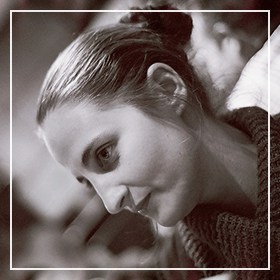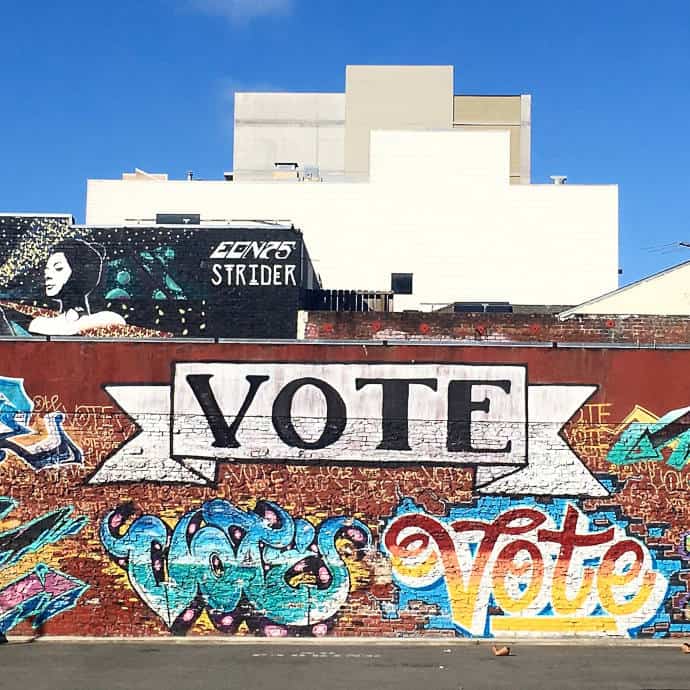 Allegra: You decided to run for the elections of the new EASA committee. Can you let EASA members know a little bit about your academic path and interests?
Allegra: You decided to run for the elections of the new EASA committee. Can you let EASA members know a little bit about your academic path and interests?
Mariya: After finishing my first degree in Bulgaria, I defended my PhD at the Central European University in Sociology and Anthropology in 2013. Trained in philosophy and intellectual history I have always been interested in the role of academics and universities in processes of social change. My doctoral dissertation explored an alternative mass university set by a group of socialist intellectuals, the Bolivarian University of Venezuela. The University design featured decolonial and critical social science component in all curricular units and extension programs in poor communities. It was based on the understanding that education should not serve Western science and political interests, but should occur in dialogue with local knowledge and through South-South geopolitical alliances. Doing fieldwork there was both an inspiring and a frustrating experience. I witnessed the potentials and limitations of the university and its community to become agents of social change in the era of advanced capitalism. After receiving my PhD I found myself at the post-2008 academic job market, what is more – an anthropologist and sociologist, and a Eastern European with a PhD on Latin America, not at home in one single discipline or area studies field. This hybrid identity made me realise old divisions and new inequalities within the academic profession and reinforced my resolve to transcend them with my work and activism. Since 2013 I have worked as a postdoc on two big projects on higher education – one in Dublin on precarity, gender and care in academia, and another one in Leeds and Cape Town on the way public-private online learning partnerships (fail to) address social inequalities. Recently, I started a new job as a Lecturer of Higher Education Studies at the University Liverpool.
Allegra: What are your main motivations in joining the EASA Committee? Do you have some ‘insider’ knowledge of the association?
Mariya: I have been a member of EASA since the early days of my doctoral studies. I always found this association to be of a size and composition where dialogue and change take place in a genuine, tangible way. This also relates to EASA’s unique history of an academic association set at the demise of the Cold War and with a desire to address the East-West divide, the asymmetries of resources and visibility both within Europe and in global anthropology. My ‘insider’ knowledge mostly comes from my work with the EASA exec as a member of the PrecAnthro collective. The initiative was formed in 2016, very much based on friendships and shared problems experienced by postgraduates of the Marie Curie PhD network for Social Anthropology in Central and Eastern Europe I was part of. We were a group of early career researchers displaced around Europe, in search for opportunities to build a meaningful career and life, facing ever bigger exploitation and enclosures on our authorship rights as researchers within big projects. Since 2016, EASA’s executive board has been extremely accommodating and responsive to our initiative. I now run for EASA board both with the desire to push further some of the issues we have started addressing as PrecAnthro on an institutional level, and with the desire to invest some effort in the association I like a lot. The issues I think are urgent include the new predicaments of the project culture and the mushrooming ‘excellence centres’ and ‘training groups’ that exploit and deskill PhDs and postdocs as apprentice data-collectors while also producing a reserve army on cul-de-sac teaching-only replacement contracts. I also want to address the question of hiring within anthropological departments that is profoundly uneven and skewed to the advantage of graduates of a few elite programs. I think EASA should also engage more with the discussion of decolonising the curriculum, and the East-West divide within Europe and the discipline in a global historical perspective. EASA should address these issues in their interconnectedness.
Allegra: What are your views regarding Open Access publishing and ‘public anthropology’ more broadly?
Mariya: These are two questions I see as quite distinct at present – despite the fake unity between them that HAU journal tried to draw.
First, open access for me is one of those clear-cut cases in which progressive ideas and practices are subjected to free market logic and used against their design. Coming from Eastern Europe and studying Africa and Latin America, I have been acutely aware of the need of free universal access to academic publications not conditioned upon institutional subscription. The shift to article processing charge initially was meant to solve this problem and place the burden to the research-intensive Global North institutions that could pay production and dissemination charge and subsidize free access. But global capitalism works in more complex and monstrous ways. Such practice still gives dominance in scientific publishing to rich institutions mostly in the Global North and their work remains an undisputed measure of quality. Furthermore, academic publishing is a lucrative billion-dollar business monopolised by a few corporations as Wileys and Elsevier. They vulture not only on readership fees, but also on un(der)paid editorial, reviewers’, and authors’ labour and on the printing industry extracting resources and cheap labour in the Global South. The competitive nature of funding also disguises the fact that research is predominantly paid by public agencies fed by taxpayers’ money. Such funding or core budgets of public universities are used to pay the excruciating fee of immediate – gold standard – Open Access to publishers so institutions can participate in research assessment and ranking. Yet, universities mostly pay it for publications featuring their permanent faculty. Precarious academics have to resort to personal means, have their articles embargoed for years, or use green access repositories at institutions that delete their profiles after the end of a short-term contracts or on ‘independent’ ones that gradually enclose their data as Mendeley, SSRN and Academia.Edu. Institutions also chose to pay open access fees to certain journals, privileging elites within disciplines rather than encouraging up-and-coming journals from less networks and locations. Anthropology saw the effects of this process with the HAU debacle: the predatory and exploitative labour, the pretence of a grassroots approach while drawing on established prestige capital and hierarchies for endorsement within the Anglo-Saxon social-anthropology tradition, and the attempted commercialisation with Chicago UP., So, while I believe we should look for new and more transgressive ways to open access to academic publishing utilising potentialities of new online platforms, until these issues are resolved and sites like LibGen and Sci-hub are criminalised (the tragic case of Aaron Swartz was a sad reminder of how dangerous real OpenAccess is), ‘OpenAccess’ remains a privilege and profit for the rich.
Where I see a commonality between OpenAccess and “public anthropology” (or sociology, or engaged scholarship for that matter) is that some progressive practices are commercialised in insidious ways. With public scholarship we see this with the advent of ‘impact’ that is now requirement in grant applications. This came from a radical critique of science’s pretence of neutrality and its detachment from day-to-day lives. People inside and outside academia insisted it needed to become socially relevant. But this has now become a tongue-in-cheek justification of the subservience of scholarship to business or of the need of all research to claim ‘policy impact’ to get funded. Within the short-circuit project culture this often means a lot of project efforts and resources going into glossy print-outs, shallow social media propaganda and rushed stakeholder engagement exercises. And while I truly believe in the value of applied social sciences, this can only happen when our research and teaching is not a subject to the instrumental logic of capital, but allows academics time and patience to dialogue with social actors and inform social change. Anthropology as a discipline, with its immersive fieldwork methodology, stands a good chance to do that, though the project culture and reduced PhD funding is killing it slowly. But all that said, I have been part of many activist initiatives that use knowledge production for social intervention as the research-informed platform LeftEast that opens a conversation between activists in East-Central Europe. I also see my work as part of PrecAnthro, and potentially within an EASA board as a form of public anthropology, as I use research-informed knowledge on academic organisations and communities in my engagement with subjects as academic precarity, labour, and inequalities.
Allegra: A new generation of anthropologists is experiencing a series of concerns related to their profession and their future. How do you see the role of EASA in this scenario?
Mariya: This is one of the main foci of my work, and one of the main reasons to run for EASA exec board. Of course, I realise that the Association’s remit is quite limited as it is neither an academic institution, nor a policy-making or funding body. However, with its place within the discipline in Europe, its publication series, networks, and the SA/AS journal, it has an important possibility to lobby bigger organisations and institutions on national levels, chart standards of good practice, and impose sanctions in cases these are not kept. EASA also has an important role in opening a conversation between economic and political precarity, in times when our world is becoming ever more violent, unequal and exclusive to a growing number of us. As one of the signatories on the motion condemning Israeli apartheid institutions in the West Bank, which EASA members voted with overwhelming majority, I am very hopeful that EASA members are willing to see more political stances taken by the executive board.





